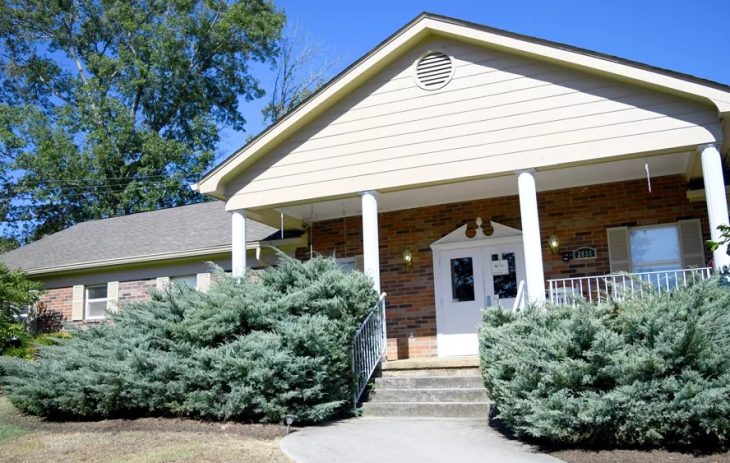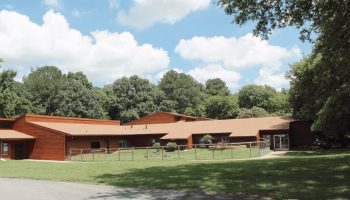About JourneyPure Knoxville Alcohol and Drug Rehab
JourneyPure Knoxville Alcohol and Drug Rehab in Tennessee has a reputation for quality addiction treatment. Almost all their past clients agreed that their recovery program actually “works.” They help adults overcome substance misuse and co-occurring disorders.
The facility boasts modest bedrooms with modern amenities. This includes a kitchen, a living area and a recreational space. It’s just the right place to focus on your recovery without distractions.
I also like that they accept Medicaid and various private insurance.
They offer medical detox, inpatient rehabilitation and medication assisted treatment (MAT). These programs are complemented by comprehensive aftercare support. You’ll first undergo an intake assessment to identify and create personalized treatment plans. This is followed by medical detox and inpatient rehabilitation.
Detox involves a carefully managed withdrawal procedure with 24/7 monitoring and support. The procedure may involve medication assisted treatment to ensure safe and comfortable withdrawal. Detox can last anywhere from a day to a few days depending on your situation.
Once you’re stable, the clinical team will help you transition smoothly into inpatient rehab for the next steps. It involves intense group and individual therapy that draws from evidence based models. These include trauma-informed care, cognitive behavioral therapy and dialectical behavioral therapy.
These models promote healthier thinking patterns, emotional regulation and coping skills that prevent relapse and promote sober living. You can expect over five hours of therapy sessions daily. It’s not so boring, though. It’s a very interactive session where you share experiences with others facing similar challenges. It’s a great avenue to make lasting friendships and build a support network.
The program incorporates holistic and recreational activities like music, social bonding, meditation/mindfulness and pet therapy. These exercises offer a break from the educational workshops. They emphasize family involvement and spiritual development. Family counseling strengthens your support system through improved communication and relationships with your loved ones.
Spiritual counseling encourages self-reflection, aids in stress reduction and promotes inner peace. This can help you stay grounded and motivated in your recovery journey. I really like how they have motivational reminders throughout their center. These little messages are not just decor; they can help you focus on why you’re here, and that you and your peers are in it together.
Aftercare coordination may involve transitioning to outpatient treatment. You’ll have access to an Alumni Coach who’s been through recovery themselves and is available whenever you need advice.
Levels of Care
-
Inpatient
Inpatient and residential programs provide round-the-clock medical and emotional support as you live at the treatment facility. This level of care may be recommended if you have severe addictions or mental health conditions since it removes outside distractions and allows you to focus solely on therapy.
-
PHP
Partial hospitalization programs provide comprehensive treatment in a structured setting during the day but allow you to return home at night. These programs offer a balance of inpatient and outpatient rehab and provide intensive support without full time residency.
-
Outpatient
In outpatient therapy, you’ll attend therapy sessions several times each week while living at home. This is ideal if you have a strong support system and a lower risk of relapse. Outpatient treatment offers flexibility to maintain work, school or family obligations.
-
Aftercare
Aftercare programs provide ongoing support after you complete a rehab program. They may include several components to help you maintain sobriety including therapy, community support groups and relapse prevention strategies. This gives you a network of resources as you reintegrate into your daily life.
-
Dual Diagnosis
Dual diagnosis programs address substance use disorders and co-occurring mental health conditions simultaneously. This integrated approach to care improves the likelihood of long term recovery and stability by addressing the root causes of addiction.
-
Intervention
An intervention is a structured and professionally guided conversation with an individual who is struggling with addiction. During the conversation, family and friends will encourage you to seek treatment. This is often a pivotal step for those resistant to getting help.
-
Sober Living
Sober living homes provide a supportive and substance free environment for you to live in as you overcome your addiction. Residents must follow house rules and support each other's recovery journeys. Sober living fosters accountability and stability during this critical phase of recovery.
Detox Service Setting
-
Inpatient Detox
Inpatient detox occurs in a dedicated treatment facility. You’ll live there around the clock and receive intensive medical support and supervision to help manage your withdrawal symptoms. It is suitable for individuals with moderate to severe addictions as it ensures a stable detox environment.
-
Outpatient Detox
Outpatient detox gives you access to medically supervised withdrawal services while still allowing you to live at home. You’ll attend a clinic for treatment and monitoring. This flexible option is suitable for those with mild to moderate withdrawal symptoms who have strong support systems.
-
MAT
Medication assisted treatment combines medication and counseling to manage withdrawal and reduce cravings for opioid and alcohol addiction. Medications may include methadone, buprenorphine or naltrexone. MAT is tailored to your needs so you can actively participate in your treatment journey.
Programs
-
Adult (18+)
Adult programs address the substance use and life challenges specific to adults. Therapists can deliver sessions in individual, group and family settings. Services often include job support and life skills training in a structured environment.
-
Alcohol Detox
Alcohol detox programs offer medical support to help individuals withdraw safely from alcohol. Your care team may use medications to ease your symptoms and provide medical monitoring to address complications.
-
Cognitive Behavioral Therapy
Cognitive behavioral therapy focuses on changing harmful thought patterns and behaviors associated with addiction. You’ll learn healthier coping mechanisms by identifying and replacing negative thoughts. This improves your emotional resilience and decreases your relapse potential.
-
EMDR Therapy
EMDR stands for eye movement desensitization and reprocessing therapy. It helps you process traumatic memories that may underlie addiction. You’ll learn how to reduce emotional distress and begin healing from past events. This makes it effective for trauma related addiction causes.
-
Opioid Detox
Opioid detox uses medications to ease severe withdrawal symptoms. It also includes medical supervision to help you manage potential complications. These services allow you to stabilize and begin a recovery plan.
-
Seniors (65+)
Senior programs address the unique needs of older adults like chronic pain, grief and isolation. Programs include peer support and medical oversight for age related health concerns. The goal is to improve quality of life and promote sober aging.
-
Women
Women's programs offer a safe and supportive space to focus on gender specific issues such as trauma, family roles and mental health conditions. Therapists tailor the sessions to address women's needs and foster empowerment in a healing and nurturing environment.
Payment Options
- Medicare
- Private Insurance
- Self Pay
Accreditations
-
 NAATP
NAATP
-
 CARF
CARF
Amenities
- Acupuncture Room
- Hiking
- Music Room
- Yoga Studio
Contact
2636 Maryville Pike
Knoxville, TN 37920





